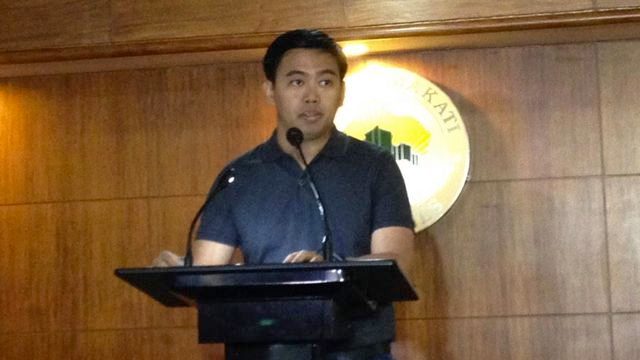SUMMARY
This is AI generated summarization, which may have errors. For context, always refer to the full article.

MANILA, Philippines – If the Ombudsman is to be believed, Mayor Erwin Jejomar Binay Jr’s argument invoking the condonation doctrine against his suspension is misplaced.
The condonation doctrine absolves an official from administrative liability committed during one term of office once he is re-elected.
On Friday, April 17, Ombudsman Conchita Carpio Morales explained that Binay’s suspension was not a form of administrative liability covered by the said doctrine.
“Di lang puwede na sabihin mo na (You shouldn’t say), ‘No, no, no! Preventive suspension, ‘di ka puwede (you’re not allowed).’ No. This is only a preventive measure. This is not a penalty,” Morales explained.
The doctrine is a defense against liability, so she said one can argue the doctrine against one’s guilt – yet to be determined in Binay’s case – but not against a suspension.
An official is suspended by the Ombudsman in administrative cases pending investigation to prevent him from using his power to frustrate the proceedings, like hiding or destroying evidence or threatening or bribing witnesses. The court does this in criminal cases.
A jurist and former Supreme Court (SC) Associate Justice, Morales said Binay’s suspension even works in his favor to ensure no evidence is tampered with.
“If you have nothing to hide, you are not supposed to arrest the powers of the Ombudsman to secure evidence in support of its complaint,” Morales added.
“This preventive suspension thing should also be working for the preventively suspended officer…. It works both ways,” she explained.
Five days after the anti-corruption body announced the start of its preliminary investigation into multiple complaints against the Makati mayor, it ordered Binay to temporarily vacate his post for 6 months without pay. Binay had refused to step down and even allowed Makati residents to barricade the city hall to prevent law enforcers from removing him from office.
He ran to the the Court of Appeals (CA) and secured a temporary restraining order (TRO), which the Ombudsman questioned before the Supreme Court.
Re-elected in 2013, the Makati chief executive is being investigated for criminal complaints of malversation, graft and violation of the procurement law over the allegedly overpriced construction of a Makati city hall building.
His suspension is linked to the administrative charges of grave misconduct, serious dishonesty, and conduct prejudicial to the best interest of the service over the same deal.
Revisit condonation doctrine
In arguing against his suspension, Binay cites his re-election which, under the condonation doctrine, frees him from a guilty verdict in the administrative charges.
A guilty verdict in these cases could mean permanent dismissal from public office and revocation of one’s civil service eligibility. Settled rulings by Philippine courts cite the controversial legal doctrine in dismissing administrative cases elevated to higher courts.
The doctrine though does not apply to criminal cases against an elected official.
Morales said the doctrine needs “revisiting” as “it was adopted by the courts in 1959, almost 55 years ago.”
“Our present constitution, the 1987 constitution, is very emphatic on the drive against corruption. It calls for honesty among public officials. It calls for public accountability,” she said.
“That policy should motivate the revisiting of the condonation doctrine because there’s no law, there’s no constitution that allows such doctrine,” she explained.
Among the Ombudsman’s pleas before the SC in the Binay case is the revisiting of the legal doctrine.
Considered one of the fiercest women in government along with Morales, Senator Miriam Defensor Santiago had filed a bill to make public officials liable for illegal acts they committed in past terms.
Morales was open to the idea and welcomed the passage of the bill if it ever comes ahead of an SC decision nullifying the condonation doctrine. – Rappler.com
Add a comment
How does this make you feel?
There are no comments yet. Add your comment to start the conversation.